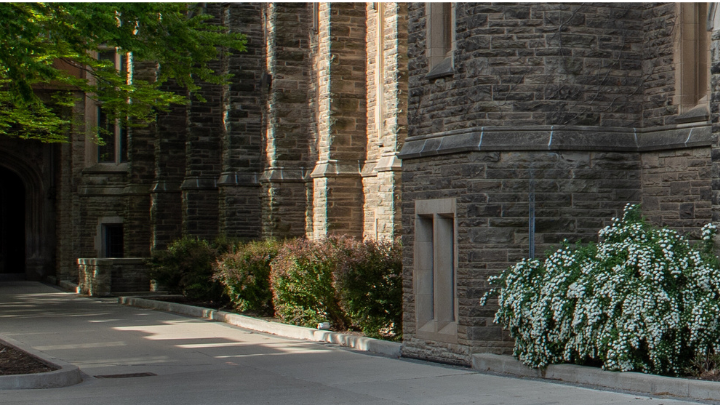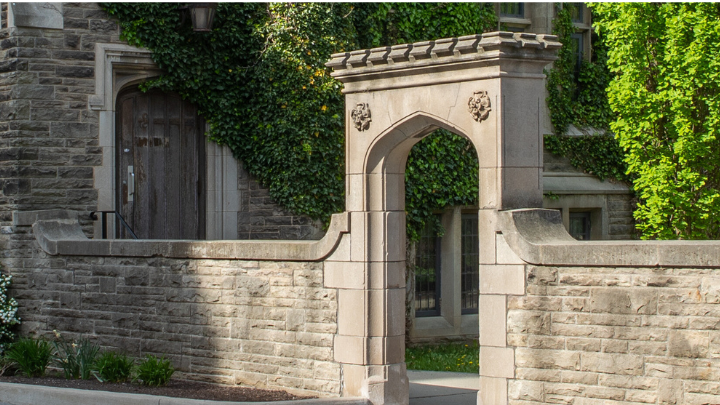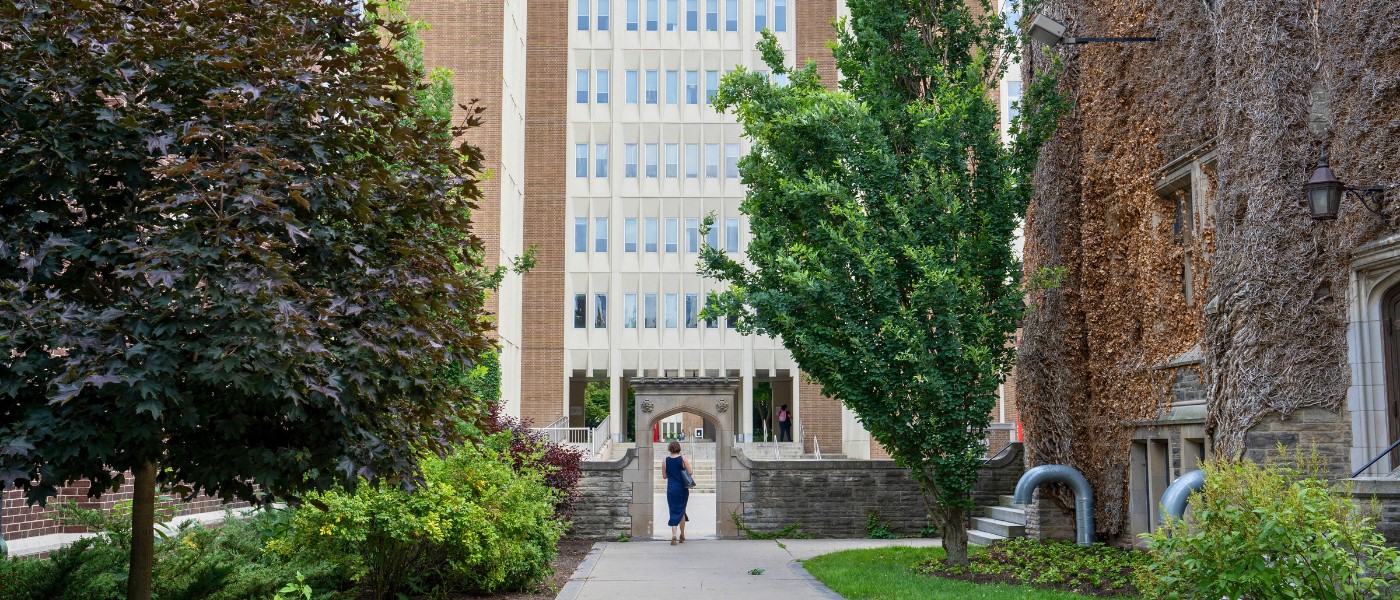MA Sociology

Welcome to McMaster University’s Graduate Programs in Sociology
Discover the unparalleled opportunities that await you at McMaster University’s MA Sociology program. Our graduate programs are designed to provide you with the expertise and experience needed to thrive in the ever-evolving field of sociology.
Whether you’re a recent graduate or a professional seeking to enhance your skills, McMaster offers a dynamic and supportive environment to help you reach your full potential.
Why Choose the MA in Sociology?
At McMaster University, our MA Sociology program stands out for its comprehensive and interdisciplinary approach to understanding social phenomena. We delve into critical areas such as work, education, health, social inequality, immigration, race and ethnic relations, paid and unpaid work, social movements, and politics. Our curriculum is designed to provide a deep and nuanced understanding of these complex issues, preparing you to make significant contributions to the field.
What sets our program apart is the close mentorship you will receive from our distinguished faculty members. Our professors are leading scholars in their areas of expertise, and they are dedicated to guiding you through your academic journey. This mentorship, combined with our emphasis on rigorous scholarship, ensures that you are well-prepared to engage with the latest developments in sociology, both in Canada and globally.
Career Opportunities
Graduates of our MA Sociology program are equipped with the skills and knowledge to pursue a wide range of career paths. Our alumni have found success in academia, public policy, social research, community development, and beyond.
The program’s strong emphasis on research and critical thinking prepares you to tackle complex social issues and make a meaningful impact in your chosen field.
Whether you aim to influence public policy, conduct groundbreaking research, or lead community initiatives, McMaster’s MA Sociology program provides the foundation for a successful and fulfilling career.
Why Choose McMaster?
Choosing McMaster University means joining a vibrant and innovative academic community. Our program offers not only a top-tier education in sociology but also numerous opportunities for professional development and networking.
With access to state-of-the-art research facilities and a diverse student body, you’ll be well-prepared to address the challenges of today’s world and make a lasting impact in your field. McMaster’s commitment to excellence and innovation ensures that you will receive an education that is both comprehensive and forward-thinking.
Areas of Specialization
Our graduate program offers specialized training in six key areas of sociology, allowing you to tailor your studies to your interests and career goals:
Sociology of Gender, Sexuality, and Family
Gain insights into the dynamics of gender roles, sexual identities, and family structures.
Political Sociology and Social Movements
Explore the mechanisms of political change and the impact of social activism.
Social Inequality
Understand the root causes and effects of social disparities and work towards solutions.
Social Psychology
Investigate the relationship between individual behaviours and societal influences.
Sociology of Race, Ethnicity, and Immigration
Study the experiences and challenges faced by diverse populations.
Sociology of Work and Occupations
Examine the changing nature of work and employment in contemporary society.
Information Box Group
Take the Next Step
Explore our supervisors page to learn more about the faculty members who will guide you through your academic journey.
If you have any questions, don’t hesitate to reach out to us.
Program Information
Applications must complete an on-line application. The program is offered full-time and in-person. The academic year runs from September 1 to August 31.
All offers of admission will be for the coursework option (12 months). The coursework option exposes students to a wide variety of specializations in sociology and provides a solid grounding for those interested in pursuing more advance studies in Sociology.
Enrolled students have the option to work with their supervisor to petition to complete the course plus major research paper (12-month length) option. This option requires two less courses than the course-based option and allows students the opportunity to plan and execute a major research paper. Holders of the Canada Graduate Scholarship – Master’s will pursue the major research option to meet the requirement of the award.
Enrolled students with a clearly defined research plan may work with their supervisor to petition to pursue the thesis option (20-24 months). Students are encouraged to apply to the Canada Graduate Scholarship – Master’s for either their first or second year of studies.
MA Options
Coursework Option
The coursework options both require that students complete eight courses. These courses are normally completed within twelve months. Students take the coursework option if they wish to give themselves exposure to a range of substantive areas of study in sociology. We advise students to consider the coursework option seriously both because it allows for the timely completion of the MA, and, for those who want to continue their studies, provides the breadth of graduate level training that is a good foundation for doctoral studies.
Typically, students complete three courses in the fall, three in the winter and two over the summer. Courses are one term, or four months, in length. Students must take one course in sociological theory (750 or 751) and one course in sociological research methods (740, 742, 743). Of the eight courses, one course must be in sociological theory (750 or 751) and one course in sociological research methods (740, 742, 743). Students are permitted to enrol in one course outside of the department OR optionally take one Sociology supervised research course (730 or 731). Courses may not be taken at the 600 level.
Major Research Paper Option (MRP)
The MRP option requires that students complete six courses and a major research paper. The MRP option requires approval by a supervisor and a petition to the graduate committee in September of the first year. Award holders of the CGS-M graduate scholarship are automatically approved to complete the MRP option.
The MRP option gives students the opportunity to both strengthen their general training in sociology and to plan and execute a major research project. Those pursuing this option are strongly advised to have a clearly defined topic before entering the M.A. program. In addition, a proposal of approximately five pages must be completed and approved by December 15.
Three courses are taken in the fall and three in the winter. Courses are one term, or four months, in length. Students must take one course in sociological theory (750 or 751) and one course in sociological research methods (740, 742, 743). As independent study is incorporated into this path, students may not take a supervised research course (730 or 731) to fill course requirements. Students are permitted to enrol in one course outside of the department provided it is not a supervised research course. Courses may not be taken at the 600 level. The major research paper will be written during the summer term. Typical program length is 12 months.
The MRP can take one of two forms.
- The first is a critical literature review, in which the sociological literature relevant to a topic is researched, synthesized and discussed analytically. This option would include a research question and build theory based on analysis of relevant literature. It would ideally provide a strong foundation in the sociological literature for a future dissertation-length project.
- The second option is to complete a paper that includes an empirical component using pre-existing data and would take the form of a manuscript suitable for submission to an academic journal. Such a paper would include a research question, discussion of relevant literature, analysis of qualitative, quantitative, or historical data, and a discussion of the paper’s contribution to the literature.
In either case, the scope of the paper should be considered carefully and discussed with the supervisor. A project that requires data collection, such as ethnography, a set of interviews, or a survey, is outside the scope of an MRP.
Thesis Option
The thesis option requires that students complete four courses and a thesis. The thesis option requires the approval of a supervisor and a petition to the graduate committee in September of the first year. Please be advised that this option takes at least two years to complete and sometimes longer. We strongly encourage students to have a clearly defined thesis topic before entering the M.A. program. Please also apply for the CGSM scholarship.
Three courses must be taken in the fall term and one during the winter term of the first year of studies. Students must take one course in sociological theory (750 or 751) and one course in sociological research methods (740, 742, 743). As independent study is incorporated into this path, it is only under exceptional circumstances students may petition to take supervised research course (730 or 731) or a course outside of the department to fill course requirements. Courses may not be taken at the 600 level.
Students also must form a three-person supervisory committee by October 15, and subsequently develop a thesis proposal of approximately five pages. The proposal must be approved by the committee by December 15. If any of these requirements are not met, you will be transferred into the coursework option in January.
Approval of the proposal allows students to begin preliminary data collection and preparation during the second term, and to continue researching and writing thought the summer and the second year of studies. The thesis must be defended at a public oral examination.
Application system opens: October 15, 2024
Deadline: January 14, 2025. The Deadline is firm.
Entrance Period: September 2025 only
Program is offered full-time in person.
Minimum Admission Requirements
- a four-year Honours degree in Sociology, Social Psychology or closely related social scientific field.
- minimum B+ average in third and fourth level courses in the discipline (first class standing, 78%, 9/12 or 3.3/4.0).
- Students with substantial coursework in sociology who have a non-Sociology degree but within a social sciences discipline will be considered.
The admissions process is competitive; meeting the minimum requirements does not guarantee admission.
English Language Proficiency
English is the language of instruction and evaluation at McMaster. Hence it is essential that all students be able to communicate effectively in English.
Applicants whose primary language is not English will be required to furnish evidence of their proficiency in the use of the English language.
- University degree at which English was the language of Instruction.
- TOEFL: minimum score of 92 (internet based), minimum of 20 per band.
- IELTS (Academic): minimum overall score of 6.5, with at least 5.5 in each section
- CAEL: minimum overall score of 70, with at least 60 per band
- MELAB: minimum score of 85
- PTE Academic: minimum score of 63
- York University course: YUELI Level 6 with a minimum final grade of B
- University of Toronto course: Academic Level 60 with a minimum final grade of B
This score should not have been obtained prior to January 2024. All results MUST be received no later than February 1, 2025. (Note: The TOEFL institution code for McMaster is “0936”; the Department code is “96”).
Online Application
Applicants apply via an on-line application. Please review the School of Graduate Studies website for complete information regarding the application process.
Transcripts
Upload a scan of all post-secondary transcripts to the application system. Include one copy of the legend page from the back of your transcript. Please do not submit an unofficial transcript or “student records print” unless the document includes, your full name, the University name and all courses and grades.
Fall 2024 grades are part of the evaluation. If you apply before these grades are available, it is your responsibility to send an updated scan of your official transcript to socgrad@mcmaster.ca It is expected that all such documents arrive by February 1 for priority consideration.
If an offer of admission is extended, you will receive directions to submit formal transcripts in institutionally sealed envelopes.
Statement of Interest
Please upload a one-page, single-spaced statement of interest that specifies your proposed area of study for the MA degree in Sociology. What research questions inspire you? What methodological skills do you bring and hope to develop while in the program? Please identify one or more potential faculty supervisors with whom you would like to work. The focus should be academic rather than biographical.
Applicants to the MA program who have not completed a BA in Sociology (or McMaster’s Social Psychology program) should include with their statement of interest an additional statement (maximum 500 words) outlining their preparation for graduate study in Sociology, e.g., completed courses with substantial sociological content, sociological research and sociologists that have informed your own work, related research assistantship experiences, etc.
Department Areas/Supervisor
It is not necessary to arrange for a supervisor as part of the admissions process. However, you should review the department’s areas of expertise and course offerings to determine if your research interests align with those of the department. Supervisors will be assigned to new students in the summer of 2025 just prior to the fall enrolment period.
Equity, Diversity & Inclusion
McMaster Sociology is committed to equity, diversity, and inclusion (EDI). Please review the Equity and Inclusion Office website and submit a one-paragraph description of your background and experience with EDI and/or how you could contribute to EDI initiatives. This paragraph can be added directly into the space provided on the application or it can be uploaded as a separate document.
Writing Sample
Please also upload a sample of written academic work that demonstrates your ability to do sociological research and your ability to write. This sample may be a course paper, part of a course paper, a thesis chapter, or a single author publication. Please do not submit an entire thesis. Formatting should be set at least one-inch margins and 12-point type.
Letters of Recommendation
Two confidential reference letters are required from instructors most familiar with your academic work. The electronic referencing system will send an e-Reference request on your behalf. Please do not submit letters from employers even if they are academic employers (TA or RA); the reference must be from an instructor who can evaluate your potential as a graduate student.
CV or Resume
Applicants are encouraged to submit a resume or Curriculum Vitae (CV).
Application Fee
The system will charge a non-refundable application fee. Please have a valid credit or debit card ready to pay the application fee. The fee will not be waived. For further information regarding the payment, please see the SGS How to Apply page.
Scholarships & Awards
The Department of Sociology at McMaster University offers financial support to incoming graduate students to help them to excel at their studies and to complete their graduate programs in a timely manner. Funding for graduate study usually comprises a combination of monies from graduate scholarships, teaching assistantships and research assistantships.
Domestic Applicants
For additional information, please visit the School of Graduate Studies Tuition, Fees and Scholarships website.
- Canada Graduate Scholarships – Master’s Program (CGSM)
All Master’s applicants should apply for this federal scholarship if they meet the eligibility requirements. Please choose McMaster as one of your three choices for university. Students receiving this award must complete either the major research paper option or thesis option as original research is a requirement of the award. Value: $27,000 one academic year; non-renewable.
- Ontario Graduate Scholarship and Ontario Graduate Fellowship
All applicants for the CGSM scholarship above will also be considered for the Ontario Graduate Scholarship and Ontario Graduate Fellowship. Value OGS: $15,000 one academic year. OGF: $12,000 one academic year.
- Daniel G. Hill Entrance Scholarship
McMaster Sociology has established the Daniel G. Hill Scholarship to support the graduate education of Black students. Please indicate your eligibility on your application.
- First Nations, Inuit and Métis Awards
Please apply directly to the following scholarships
• Harvey E. Longboat Graduate Scholarship
• Ontario Graduate Scholarship for Indigenous Students
International Applicants
Given limited available funding, we accept very few international students. You are strongly encouraged to pursue additional funding opportunities from outside of the university.
Resources for international applicants
- Tuition, Fees and Scholarships
- External Scholarships
- International Student Services
- UHIP (International Students Health Insurance)
- Graduate Studies Information for International Students (intended for incoming students but the information is useful for applicants as well)
Resources
Quick Links

Graduate Supervisors Learn More
Find a graduate supervisor in your area of interest.

Research in Sociology Learn More
Learn more about our recent and ongoing research projects.

Graduate Courses Learn More
View our graduate courses and course descriptions.
Contact Us
Corinne Jehle
Administrative Assistant, MA and PhD Programs
Email: socgrad@mcmaster.ca
Phone: 905-525-9140 ext. 23613
Office Location
Department of Sociology
Kenneth Taylor Hall, 627
1280 Main Street West
Hamilton, Ontario, Canada
L8S 4M4
Office Hours
Monday – Friday:
9:00AM – 12:00PM & 1:00PM – 4:00PM

